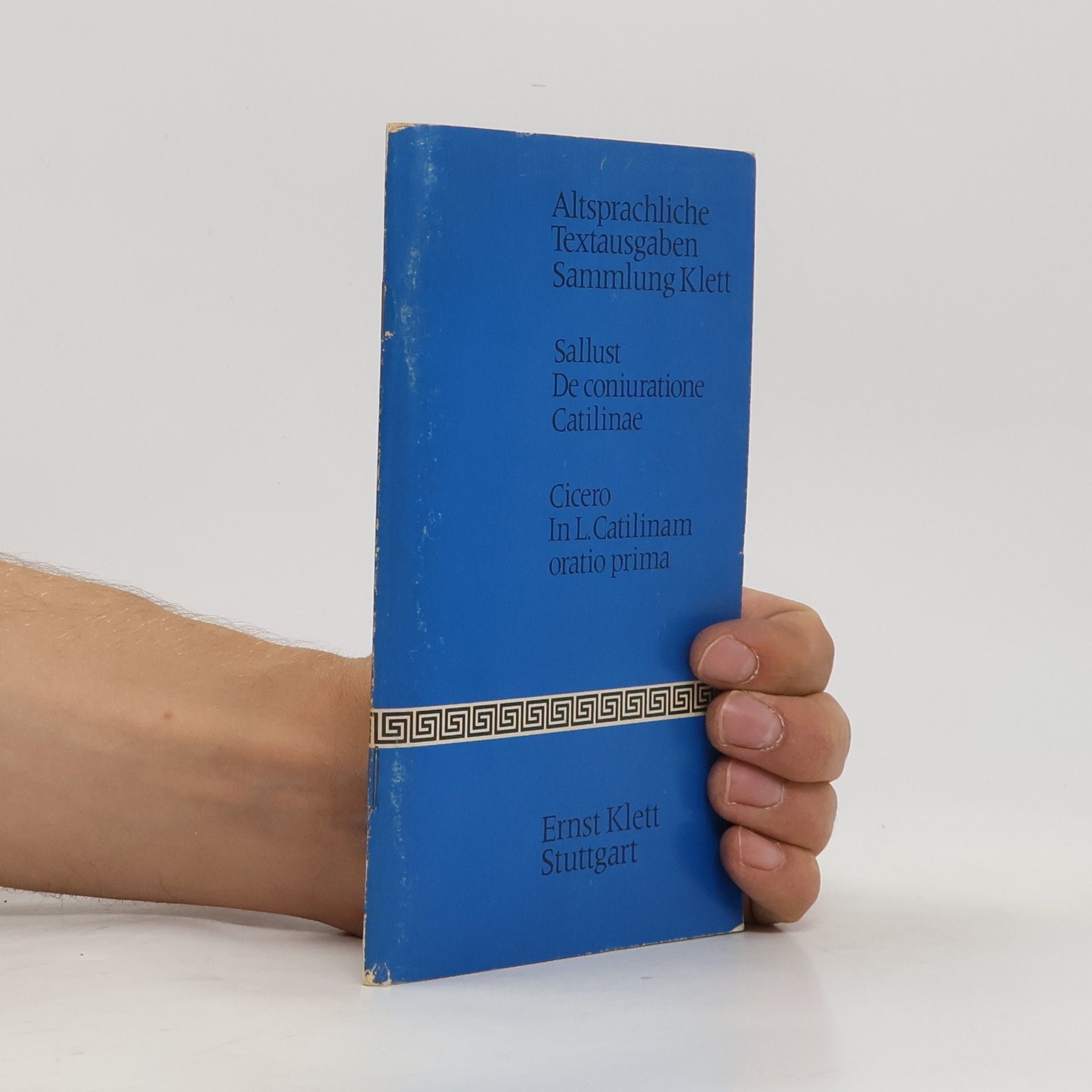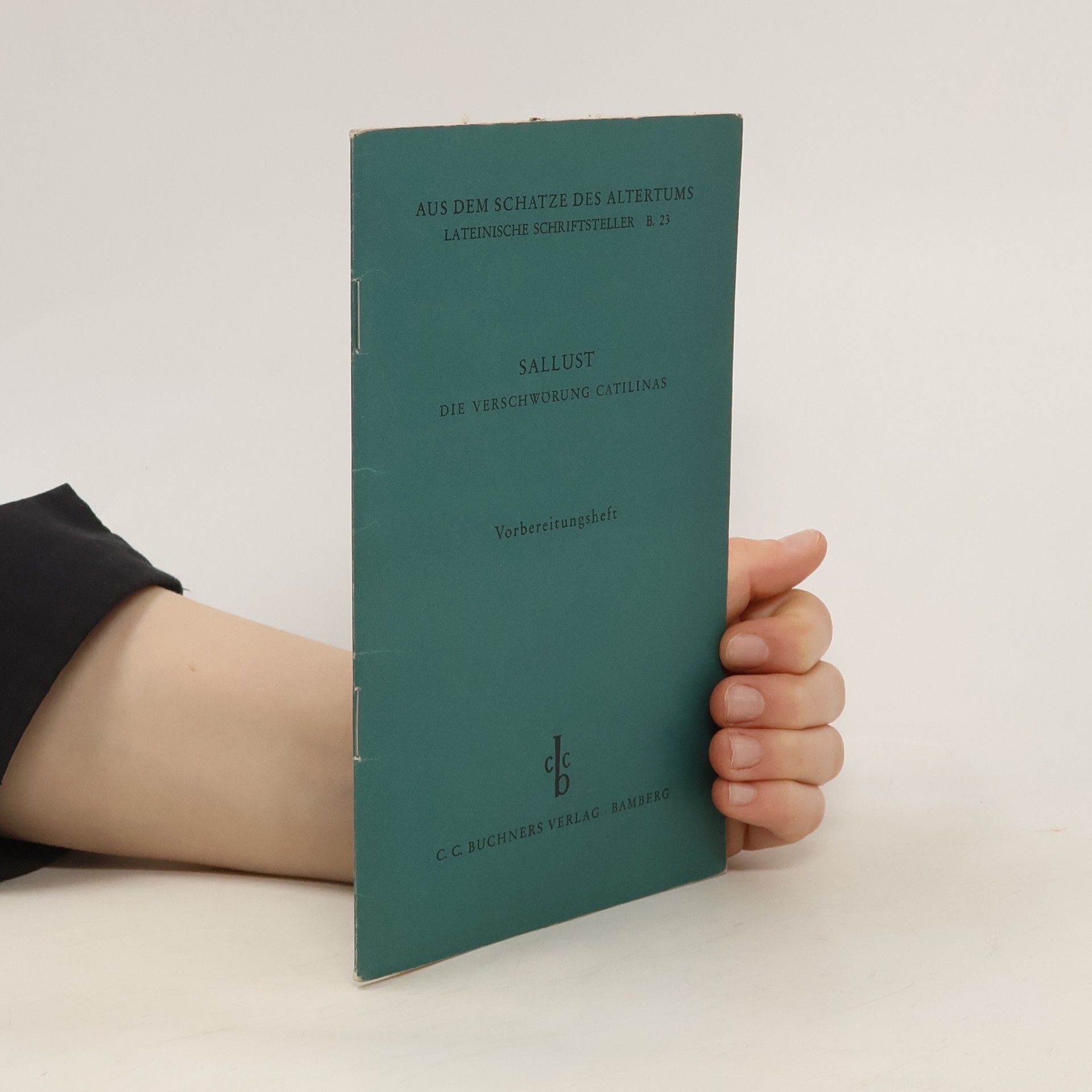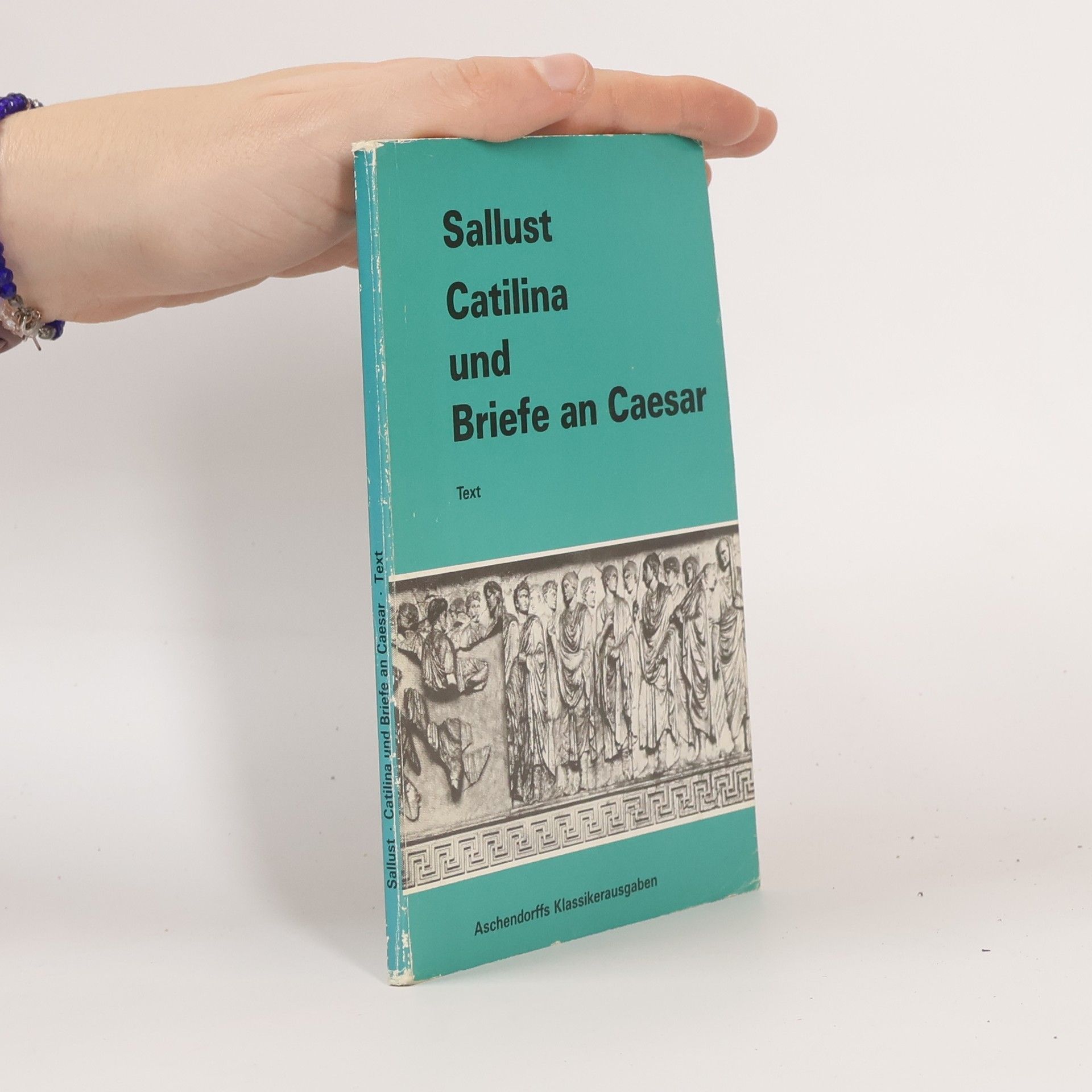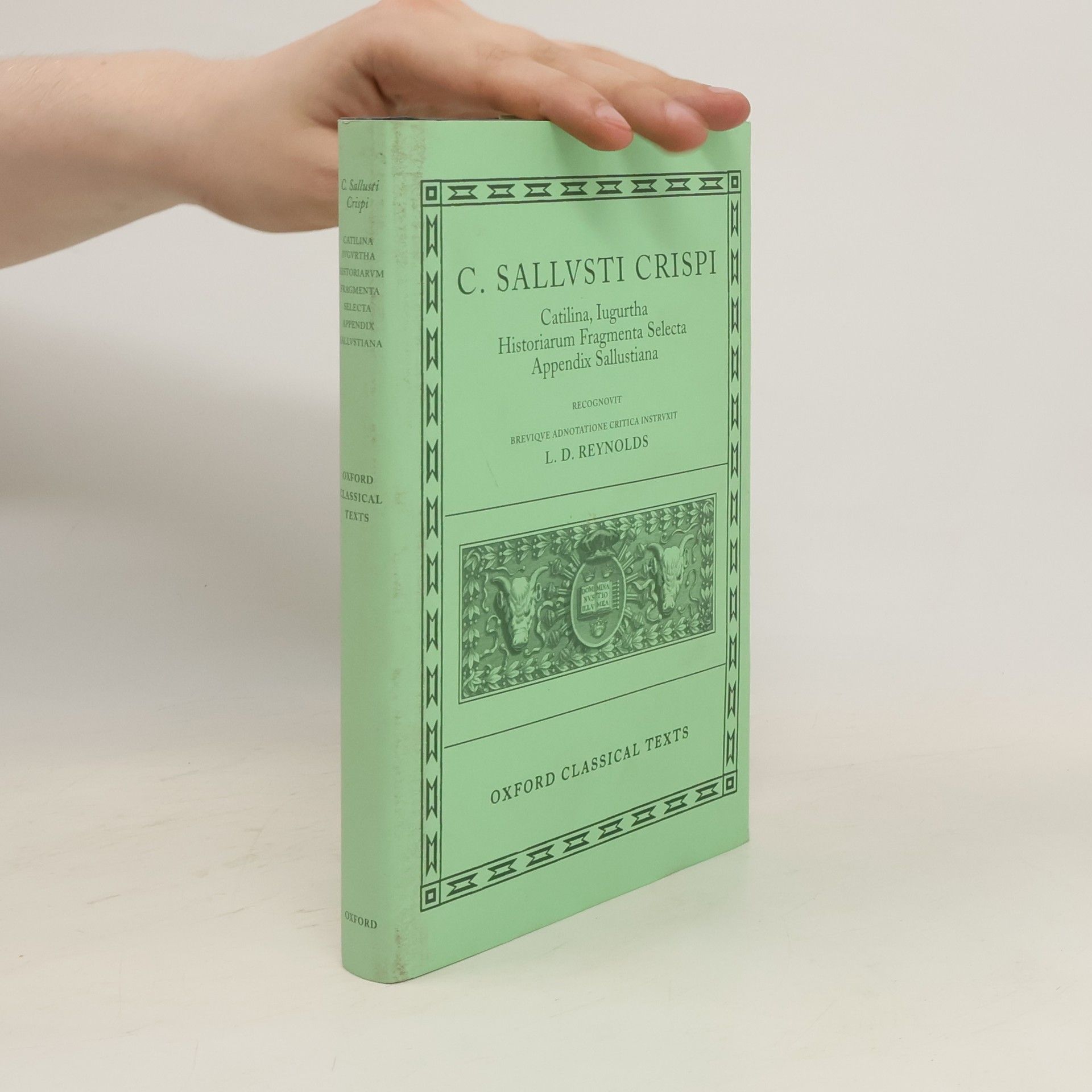The book is a reproduction of a historical work, presented in large print to enhance accessibility for individuals with impaired vision. Published by Megali, a company dedicated to making classic literature more readable, this edition aims to preserve the original content while catering to the needs of a wider audience.
Gaius Sallustius Crispus Book order (chronological)



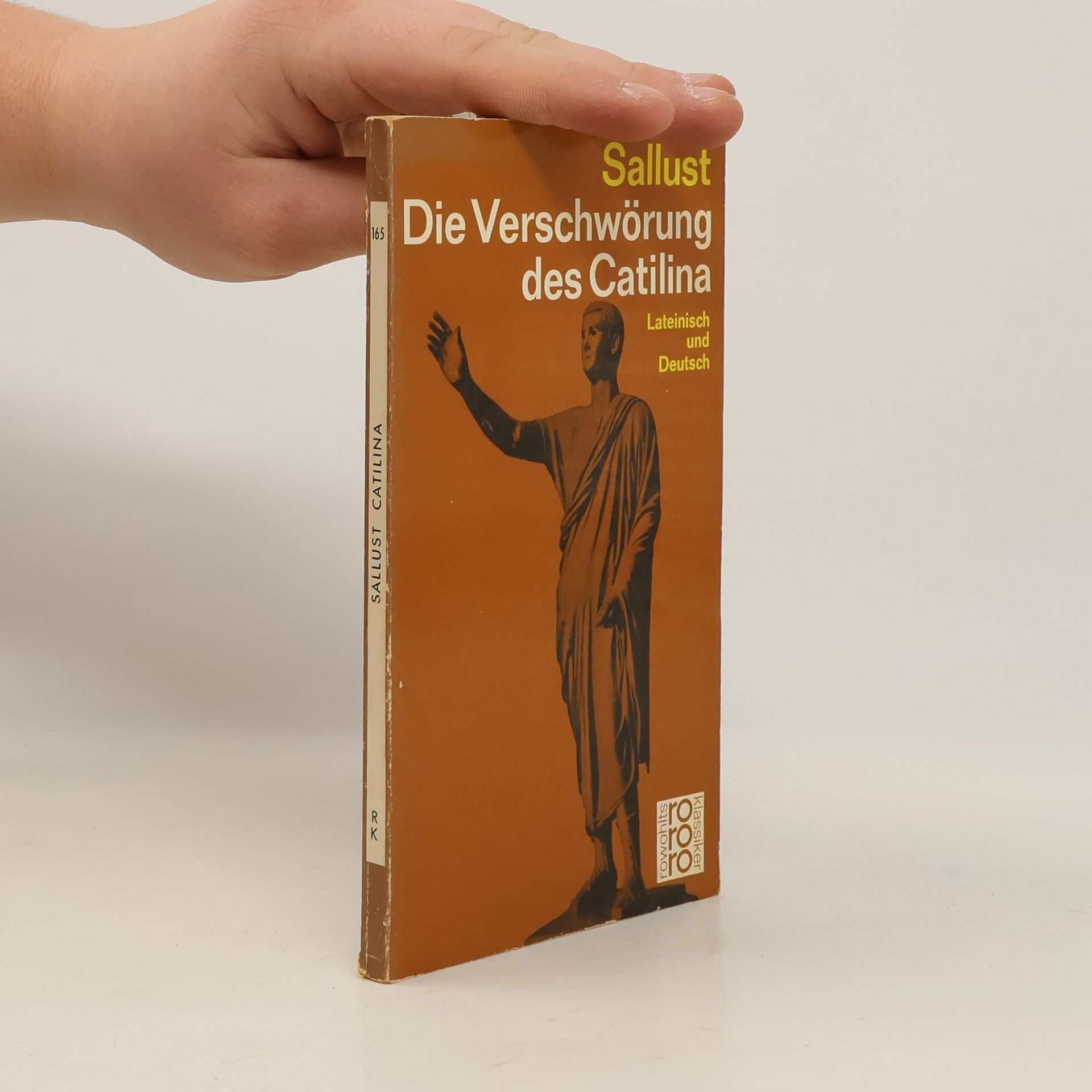


Catiline's War, and The Jurgurthine War (Royal Collector's Edition) (Case Laminate Hardcover with Jacket)
- 204 pages
- 8 hours of reading
The narrative explores Lucius Sergius Catilina's conspiracy to topple the Roman Republic in 63 BC, highlighting the political intrigue and societal tensions of the era. Additionally, it covers the Jugurthine War, a conflict against Jugurtha in Numidia from 112 to 106 BC, illustrating the challenges Rome faced in maintaining its power and the complexities of warfare during this tumultuous period. Together, these historical accounts provide insight into the struggles for control and the dynamics of Roman politics.
How to Stop a Conspiracy
- 240 pages
- 9 hours of reading
In 63 BC, frustrated by his failure to be elected leader of the Roman Republic, the aristocrat Catiline tried to topple its elected government. Backed by corrupt elites and poor, alienated Romans, he fled Rome while his associates plotted to burn the city and murder its leading politicians. The attempted coup culminated with the unmasking of the conspirators in the Senate, a stormy debate that led to their execution, and the defeat of Catiline and his legions in battle. In How to Stop a Conspiracy, Josiah Osgood presents a brisk, modern new translation of the definitive account of these events, Sallust's The War with Catiline. In a taut, jaw-dropping narrative, Sallust combines juicy details about Catiline and his louche associates with highly quotable moral judgments and a wrenching description of the widespread social misery they exploited. Along the way, we get unforgettable portraits of the bitter and haunted Catiline, who was sympathetic to the plight of Romans yet willing to destroy Rome; his archenemy Cicero, who thwarts the conspiracy; and Julius Caesar, who defends the conspirators and is accused of being one of them. Complete with an introduction that discusses how The War with Catiline has shaped and continues to shape our understanding of how republics live and die, this volume makes Sallust's gripping history more accessible than ever before.
Conspiracy Of Catiline And The Jurgurthine War
Literally Translated With Explanatory Notes By The Rev. John Selby Watson
- 168 pages
- 6 hours of reading
Exploring pivotal events in Roman history, this work presents a literal translation of the conspiracy of Catiline and the Jurgurthine War, accompanied by explanatory notes by Rev. John Selby Watson. It delves into themes of political intrigue, corruption, and military conflict, providing insights into the social and political dynamics of ancient Rome. The annotations enhance understanding of historical context and significance, making it a valuable resource for students and enthusiasts of Roman history.
Gaius Sallustius Crispus (86-35 v. Chr.), der in jungen Jahren selbst eine Karriere in der römischen Staatsführung angestrebt hatte, wandte sich nach den ersten Erfahrungen entsetzt ab von einem Politikbetrieb, der ihm ausschließlich von persönlichem Ehrgeiz geprägt schien. Als entschiedener Anhänger Iulius Caesars wurde er schließlich doch noch Quästor, Senatsmitglied und Volkstribun, später Prätor und Prokonsul, in welchen Ämtern er den moralischen Ansprüchen seiner Schriften allerdings nicht gerecht wurde. Nach Caesars Tod zog er sich erneut von der Politik zurück und lebte im Norden Roms in einer Villa, von der noch heute die Horti Sallustiani zeugen, wo er sich der Geschichtsschreibung widmete. Erhalten sind von ihm die beiden Monographien Die Verschwörung des Catilina und Der Krieg mit [Numiderkönig] Iugurtha, ferner Fragmente aus seinem Geschichtswerk Historiae, vor allem Reden und einige Schlachtenschilderungen sowie der berühmte Brief des Königs Mithridates von Pontos. Die sogenannte Appendix Sallustiana umfasst zwei Briefe an Caesar über den Zustand der römischen res publica und eine Schmähschrift gegen den politischen Gegner Marcus Tullius Cicero. Die darin aufgeworfenen Fragen nach der Verführbarkeit von Politikern durch Lobbyisten oder danach, welche Notstandsmaßnahmen ein Staat ergreifen darf, haben an Aktualität nichts eingebüßt.
Catiline's Conspiracy, The Jugurthine War, Histories
- 236 pages
- 9 hours of reading
These three works exemplify the Roman historian Sallust's condemnation of the excesses of the late Republic. In the conspiracy of Catiline and the war against Jugurtha he sees moral and political corruption and the tragedy of civil strife. This new translation captures Sallust's distinctive style and considers his work as history and literature.
Catilina, Iugurtha, Historiarum Fragmenta Selecta, Appendix Sallustiana
- 280 pages
- 10 hours of reading

